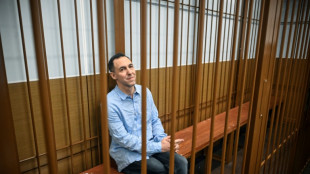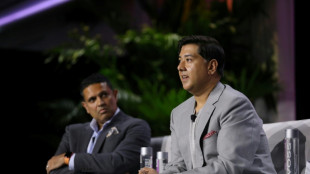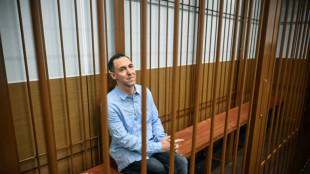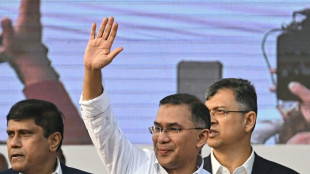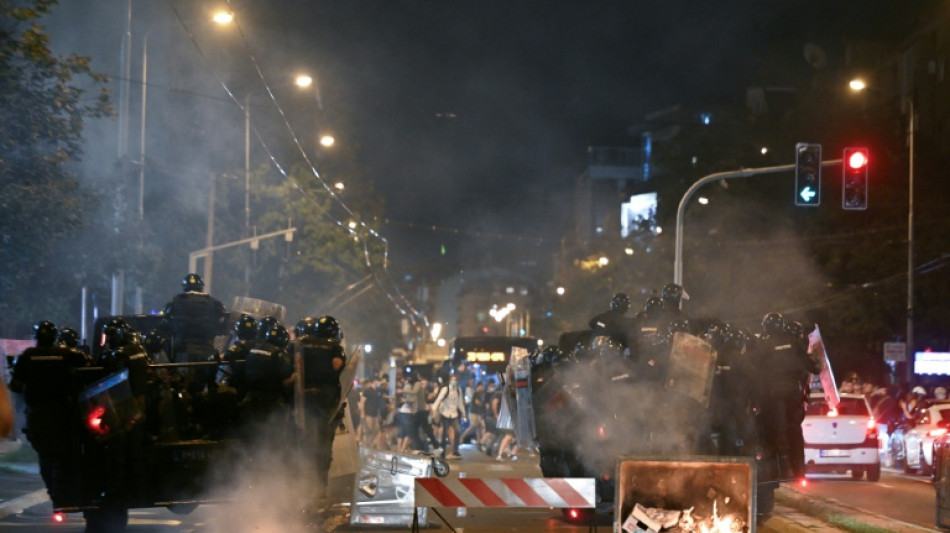
Serbia protesters accuse police of abuse and warn of 'spiral of violence'

Serbian anti-government protesters accused police Tuesday of beating and threatening detained activists, fuelling fears of a spiralling crackdown after a week of violent clashes.
Almost daily protests have gripped Serbia since November, sparked by the collapse of a railway station roof that killed 16 people.
The tragedy became a symbol of deep-rooted corruption in the Balkan nation, with demands for a transparent investigation morphing into calls for early elections.
But in the past week, the mostly peaceful demonstrations have erupted into street violence over several nights, with loyalists of President Aleksandar Vucic attacking protesters and riot police responding forcefully to the destruction of his party offices.
More than 100 protesters have been detained, with one telling AFP they were beaten and threatened with rape while in custody.
Nikolina Sindjelic, a student activist, said she was dragged along with another student and several other protesters into a government garage in central Belgrade by officers in a special police unit on Thursday night.
"The commander of the unit brutally beat both him and me," the 22-year-old political science student said.
"He called us offensive names, told me I was a whore and that he would rape me there in front of everyone, that I would regret trying to overthrow the state."
The Ministry of Internal Affairs "strongly denied" the allegations. It said Sindjelic was arrested for being part of a group that had attacked government buildings and police.
"Throughout the entire procedure, no means of coercion, handcuffing, insults, or any form of mistreatment were applied," it said.
Sindjelic, who was released with a misdemeanour charge, said she intends to file a lawsuit over her alleged abuse.
- 'Brutal behaviour'-
Hundreds gathered in front of the accused commander's police building in Belgrade on Tuesday to support Sindjelic and decry widespread reports of police brutality.
Protesters carried banners reading, "Rapists with badges" and "The system beats us, we defend ourselves".
"Unfortunately, we are now entering a spiral of violence, and I do not see how it can end well if things continue in this way," 31-year-old protester Andrej Sevo said.
"They must decide how to act and calm the situation, rather than simply pouring fuel on the fire by sending in the police, with ever more brutal behaviour."
Aleksandra Krstic, 45, also at the rally, said women were especially vulnerable to police abuse.
"We have no one to protect us. If I go to a protest, I should be able to turn to the police... not be beaten, dragged into some basement of a government building, threatened with rape, and forced to beg them to stop," the political science professor said.
- 'A bid to seize power' -
On Monday night, protesters again faced off with riot police after an office of Vucic's Serbian Progressive Party had its windows smashed by a passing crowd.
Within an hour, the embattled leader stood in front of the shattered glass, flanked by pro-government media and security, to denounce the anti-graft demonstrators as "terrorists" -- a familiar refrain for the 55-year-old statesman.
"We will fight them everywhere, and we will resist them wherever they appear," he said, after riot police had chased protesters from the area.
While the protests have so far led to the resignation of the prime minister and the collapse of the government, Vucic -- in power for 13 years -- has remained defiant.
He has repeatedly rejected calls for early elections and recently threatened a "strong response" to the demonstrations.
"This is an attempt at a foreign-funded colour revolution, in which no means are spared, and violence is used in a bid to seize power," he said on Monday night.
He has frequently decried the movement as a "colour revolution" -- a term favoured by the Kremlin and its allies to smear protest movements as illegitimate.
Russia remains a close Serbian ally despite Belgrade's declared path to the European Union.
The EU ambassador to Serbia, Andreas von Beckerath, said he and other diplomats had met with the government to "discuss the current political situation" in Serbia.
"The EU Ambassador underlined the need by all parties to uphold the respect for fundamental rights, including the right for peaceful assembly," Beckerath said Monday.
"Any suspicion of excessive use of force needs to be duly investigated, including worrying reports about threats and violence against journalists," he said.
S.Escobar--HdM

 London
London

 Manchester
Manchester
 Glasgow
Glasgow
 Dublin
Dublin
 Belfast
Belfast
 Washington
Washington
 Denver
Denver
 Atlanta
Atlanta
 Dallas
Dallas
 Houston Texas
Houston Texas
 New Orleans
New Orleans
 El Paso
El Paso
 Phoenix
Phoenix
 Los Angeles
Los Angeles
